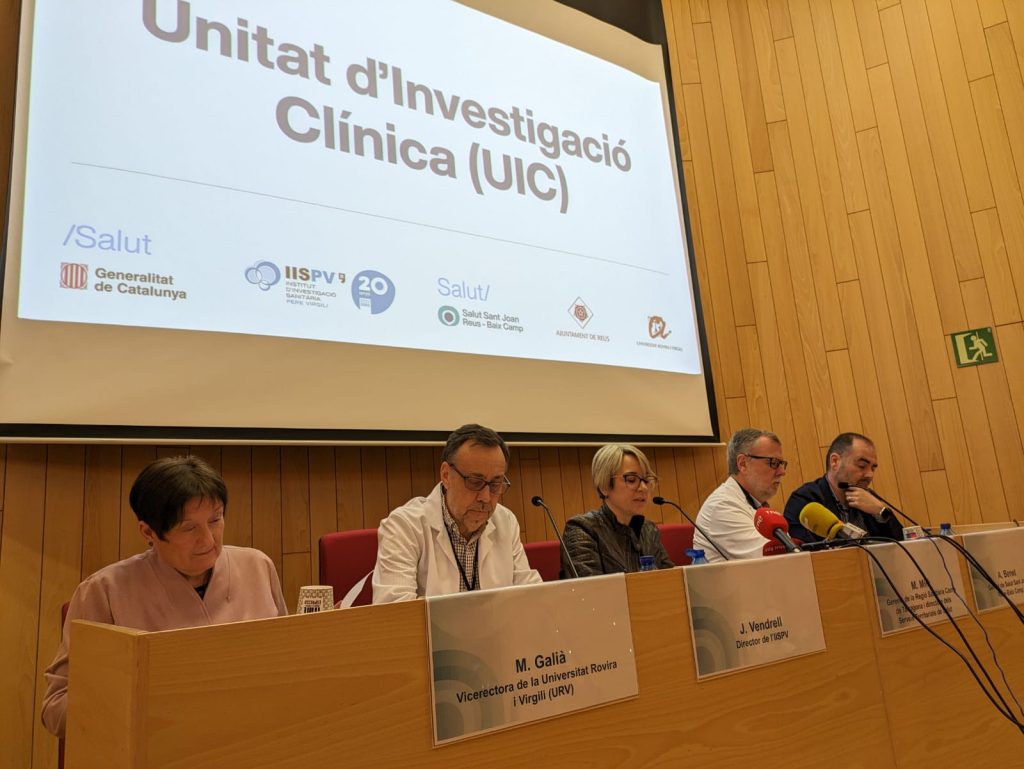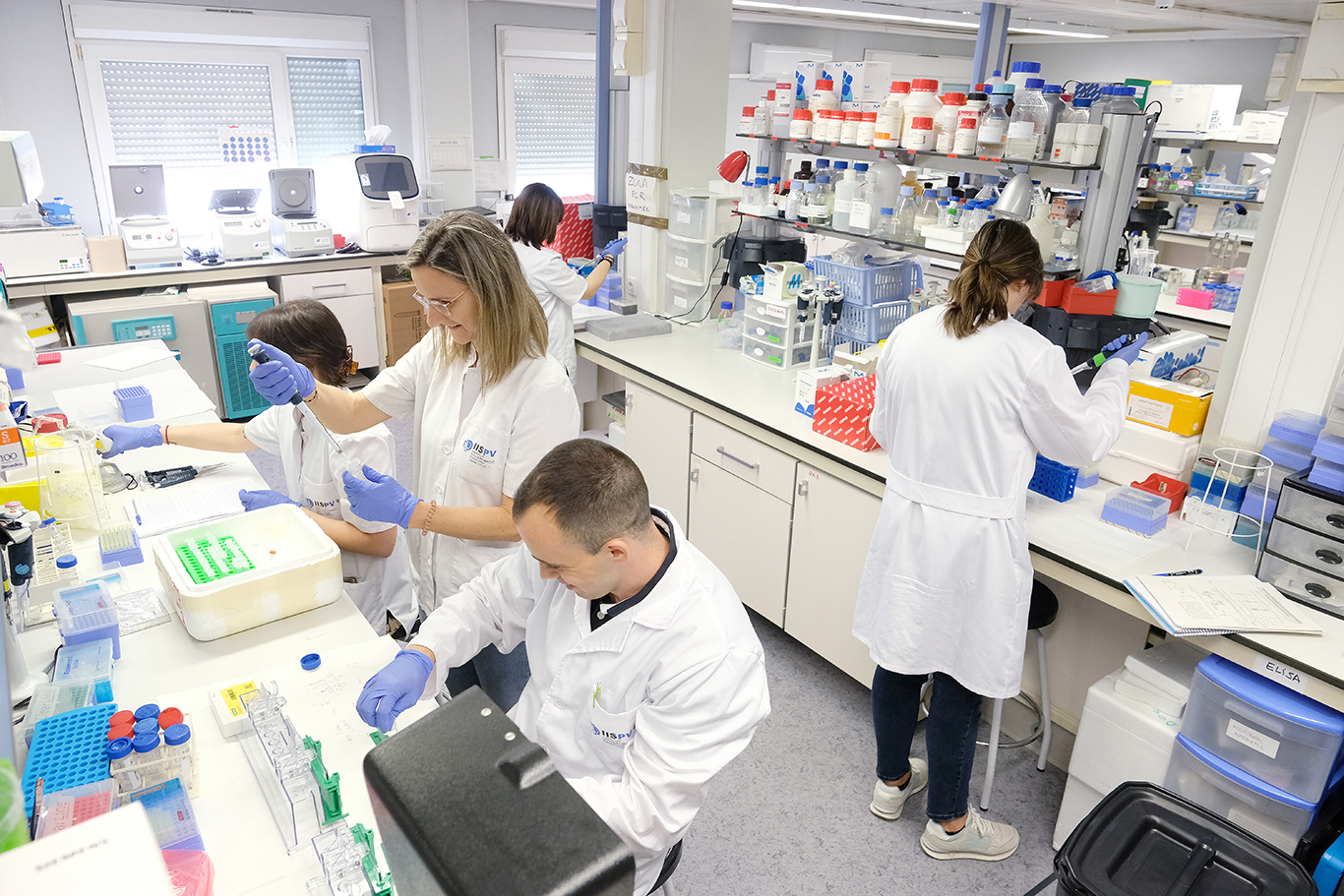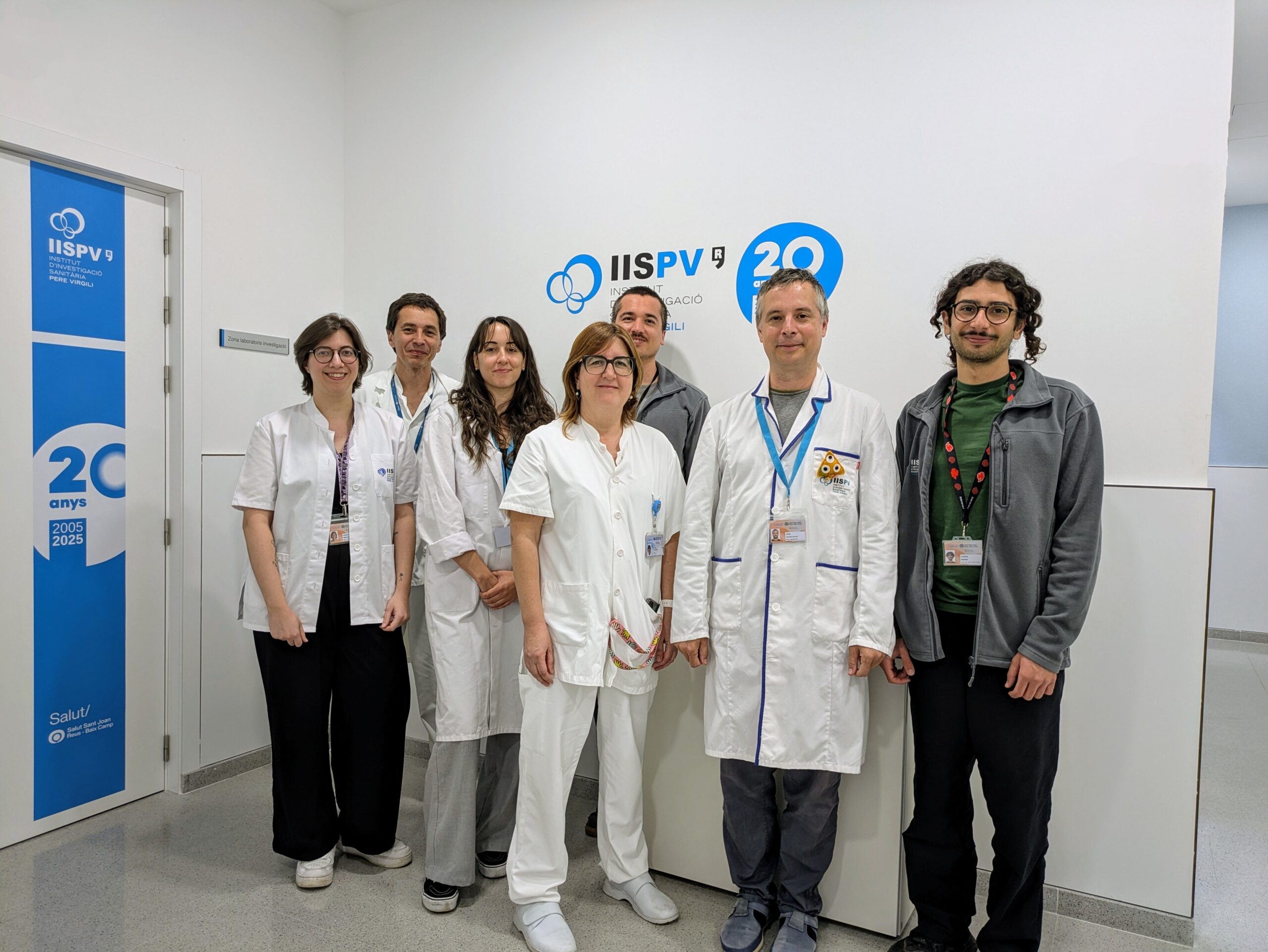
Reus, January 22, 2025. The province of Tarragona will take a step forward in carrying out clinical trials of cutting-edge drugs thanks to the construction, this year, of a Clinical Research Unit (UIC). This facility, which will occupy a space of 500 m2, has received a grant of 4,312,240 euros from the Carlos III Health Institute (Ministry of Science, Innovation and Universities) and will be located at the Sant Joan University Hospital in Reus. This new UIC has been promoted by the Pere Virgili Health Research Institute (IISPV) together with the Sant Joan University Hospital in Reus, and has had the collaboration of all the health institutions in the territory, the Rovira i Virgili University (URV) and local bodies such as the Reus City Council.
It is in a clinical trial when a medicine begins to be administered to a patient, in order to be marketed with all the guarantees. It goes through 4 processes before it is released on the market: from phase 1, which is the most experimental (in which a patient participating in this trial is treated for the first time with this drug) to phases 2, 3 and 4, which are more advanced and in which aspects such as effectiveness or the suitability of the dose are looked at, to finally end up authorizing its distribution and clinical application.
Currently, clinical trials in phase 1 are only carried out in research centers linked to large hospital structures, located mostly in the Barcelona area. The creation of this UIC will make it possible for this type of study to also be carried out in our territory: “We were already carrying out studies in phases 2, 3 and 4, but, from now on, this UIC will provide us with more infrastructure and resources to carry out clinical trials in phase 1. The expansion of resources (both human and those allocated to space) will help healthcare professionals attract more trials from the other phases; it will allow us to carry out a trial in all its stages, in short, from the most initial to the last, and it will favor the population of our territory to have access to therapies that are only carried out within the framework of a controlled study, bringing them closer to more experimental and innovative drugs”, explains Dr. Joan Vendrell, director of the Pere Virgili Health Research Institute (IISPV). He adds: “This will be especially relevant for patients with cancer, as it will allow therapies that have so far been limited exclusively to controlled trial settings to be brought closer. This initiative represents a step forward in reducing the current gap in access to this type of study, thus improving treatment opportunities for these patients.”
The director of the IISPV, Dr. Joan Vendrell, explains that “with a population of over 800,000 inhabitants, our territory has a potential that exceeds that of other regions with research centres concentrated in large hospital environments. Despite this reality, the current distribution of clinical trials means that access to these trials/studies is still insufficient for our population. The creation of the unit can not only help to reverse this situation, but will also allow research resources to be brought closer to professionals and patients, improving access to innovative therapies.”
For his part, Dr. Anton Benet, manager of Salut Sant Joan Reus-Baix Camp, highlighted “the factor of attraction and retention of talent” that having this facility at the hospital will mean. “The Clinical Research Unit will reinforce our university character, of research and innovation, and will provide value to society and professionals in the generation of knowledge”, he added.
The Universitat Rovira i Virgili very positively assesses the launch of this unit, which “allows us to promote scientific interconnection with the IISPV and promote institutional collaboration with entities in the territory to address a social challenge as important as health, one of the priority research areas of the Strategic Plan for Research and Innovation that we have just approved”, explains Marina Galià, Vice-Rector for Research at the URV. “Having modern and well-equipped spaces, with the appropriate infrastructure and the necessary personnel should allow us to consolidate new priority areas of research and develop research, innovation and transfer projects that have a high social impact on the territory”, he emphasizes.
For his part, Enrique Martín, Councilor for Health and Sports of the Reus City Council, declares: “the city council and the institute have been collaborating for some time to consolidate a leading position of the city in terms of health research, and that this directly or indirectly results in an improvement of services to the citizens. The presence of research infrastructures for the advancement in the treatment of diseases is important for this territory and, even more, I would like to emphasize that it helps us guarantee the equality of access to the population to trials and studies”.
This new UIC is scheduled to be operational by the end of 2026. It will also house a 3 Tesla high-resolution nuclear magnetic resonance device to study in detail different parts of the body as well as aspects of the functioning of organs that require special technology, outside the routine healthcare use of these devices.
The UIC will have the complicity of the public health system in primary care (CAPs) by bringing the studies closer to patients through their family doctor. This will be possible thanks to a real-time interconnection between the consultations and the UIC through an IT deployment that links routine healthcare activity with the trials that are active within the territory.
About IISPV
The Pere Virgili Health Research Institute (IISPV) is the centre that manages health and biomedical research in the province of Tarragona and brings together the Joan XXIII University Hospital in Tarragona, the Sant Joan University Hospital in Reus, the University Hospital Pere Mata Institute in Reus and the Verge de la Cinta University Hospital in Tortosa, as well as the Rovira i Virgili University. Since its creation in 2005, the institute has worked to ensure that biomedical research is translated into quality clinical practice for the benefit of patients and an improvement in the health of the population. More than 600 professionals, including researchers, technicians and staff in training, are part of the IISPV, which has 38 research groups divided into four strategic areas: the Metabolic Diseases and Nutrition area, with 16 research groups; the Infection, Immunity and Environment area, with a total of 10 groups; the Oncology area, with 6 more research groups; and the Neurosciences and Mental Health area, which includes 6 research groups.


